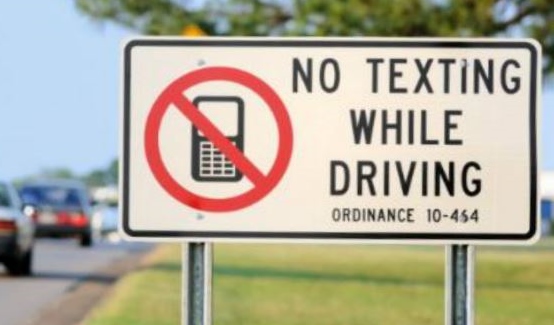WASHINGTON - Advocates for Highway and Auto Safety released their 17th edition of the annual Roadmap of State Highway Safety Laws report, with both New Hampshire and Vermont earing some of the poorest grades in the nation. The report found 395 proven countermeasures that could be saving lives that have not been enacted.
New Hampshire and Vermont were among a dozen states that have the fewest number of optimal laws. South Dakota at just two was deemed the least safe.
The Report, "A 2020 Vision for Safety," provides a "report card" on 16 traffic safety laws for each state and Washington, D.C. Opportunity exists in every state to enact laws that combat the widely acknowledged public health crisis of motor vehicle crashes.
At a press conference unveiling the report, the group's president, President Cathy Chase said, "With the start of a new decade, our clear vision is to eradicate the horrific death and injury toll occurring on our roadways. Every day, approximately 100 people are killed and nearly 7,500 more are injured in motor vehicle crashes. The emotional devastation inflicted on families from crashes also comes with a significant annual economic cost of $242 billion. This results in each person living in the U.S. essentially paying a "crash tax" of a $784 every year. The status quo is unacceptable. As state legislatures around the country convene, now is the time for attention, activism and action."
The Advocates' Report gives every state and Washington, D.C. a rating in five categories (Occupant Protection, Child Passenger Safety, Teen Driving, Impaired Driving, and Distracted Driving) as well as an overall grade of: Green (Good); Yellow (Caution); and Red (Danger). Seven states (RI, WA, DE, ME, OR, CA, LA) and Washington, D.C. received green ratings with Rhode Island topping the list at 13 enacted laws. Thirty-one others received a yellow rating indicating the need for improvement. Twelve states earned a red rating for lagging dangerously behind in the adoption of Advocates' recommended laws (SD, WY, MO, MT, AZ, OH, FL, NE, NV, NH, VT, VA). South Dakota has the fewest number of optimal laws at just two total.
Advocates' President Cathy Chase also revealed the results of a new public opinion poll that found a high degree of concern about distracted driving and drug-impaired driving. When asked if states should pass laws prohibiting distracting activities such as watching movies or playing video games, the support for doing so was consistent and clear at 90 percent. Anti-distracted driving advocate Jennifer Weaver reflected on the public's sentiment saying, "At a time when multitasking and cell phone addiction have become the norm, no one thinks they will be the one to cause a distracted driving crash or even a fatality. No one gets into their car thinking, 'I am going to answer a call or read a text while driving and kill someone as a consequence.' However, I am here to tell you that it can happen to anyone and all it takes is a split-second decision to take your eyes off the road."
A special section of this year's Report, "2020 Vision: Issues in Focus," details areas where technological advances could be saving lives today. "We are at a transformational time in transportation innovation with the availability of safety technologies in vehicles to prevent or mitigate crashes," said Dr. Deanna Wathington, Executive Dean of Health Sciences at Bethune-Cookman University and Executive Board Vice Chair of the American Public Health Association (APHA). "Systems such as automatic emergency braking (AEB), blind spot detection (BSD) and lane departure warning (LDW) have all been proven to significantly reduce crashes; however, they are often only available through luxury add-on packages or in high-end vehicles which many consumers cannot afford. Additionally, there are no minimum performance standards for them, so each one performs differently which can be confusing and hazardous to motorists and everyone sharing the roads with them."
In 2019, 12 laws were passed in nine states and D.C. that meet the Roadmap Report's criteria. Among the states making progress were Arizona and Florida enacting all-driver texting bans; Arkansas and Washington D.C. enacting optimal graduated driver licensing (GDL) cell phone bans; Louisiana, Maine, Washington, and Washington, D.C. enacting rear facing through age two or longer child safety seat laws; Maine upgrading its booster seat law; New Mexico passing a child endangerment law; and, New Jersey and Kentucky passing laws requiring ignition interlock devices (IIDs) for all drunk driving offenders.
There are, however, many opportunities in this new decade for improvement:
- Primary Enforcement Seat Belt Laws: 16 states lack an optimal primary enforcement seat belt law for front seat passengers, while 31 states need an optimal primary enforcement seat belt law for rear seat passengers;
- All-Rider Motorcycle Helmet Law: 31 states need an optimal all-rider motorcycle helmet law;
- Rear Facing Through Age Two: 35 states and DC are missing a rear facing through age two child protection law;
- Booster Seats: 34 states and DC need an optimal booster seat law;
- Graduated Driver Licensing (GDL) for Teen Drivers: 193 GDL laws need to be adopted to ensure the safety of novice drivers. No state has all six optimal provisions of a GDL law;
- Impaired Driving: 30 important impaired driving laws covering all-offender ignition interlocks, child endangerment, and open containers are needed;
- All-Driver Text Messaging Restriction: Five states need an optimal all-driver texting ban; and,
- GDL Cell Phone Restriction: 19 states need a GDL cell phone restriction.














